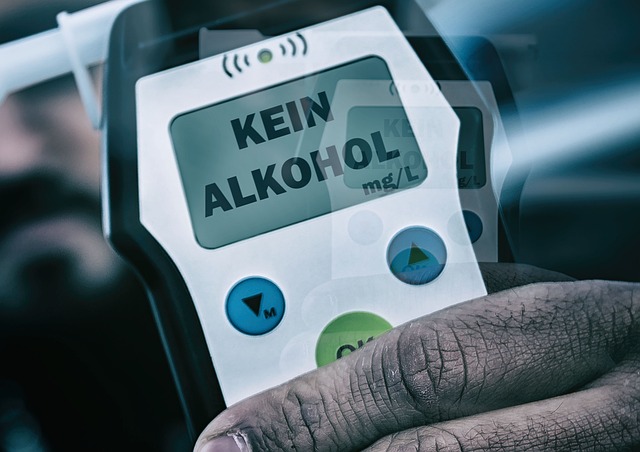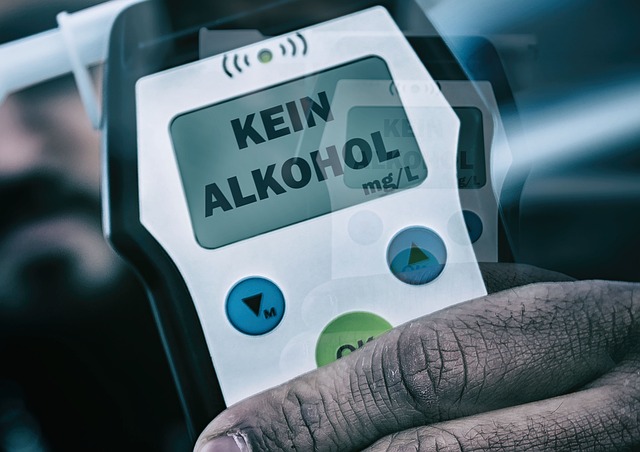In the digital age, Vehicle Safety Features like Advanced Driver Assistance Systems (ADAS) enhance driver protection but raise privacy concerns regarding sensitive data collection under strict DUI laws. Automakers must implement robust security measures to safeguard personal information while enabling technology for safe driving. Global variations in DUI regulations and data privacy laws create complexities, emphasizing the need for international collaboration to establish consistent road safety standards worldwide.
In today’s connected world, online privacy is paramount, yet its impact on vehicle safety is often overlooked. This article explores the intricate relationship between these two critical aspects. We delve into how advanced driver assistance systems (ADAS) leverage data to prevent DUIs, while ensuring data security measures protect your information. Furthermore, AI plays a pivotal role in monitoring and promoting safe driving behavior. With global perspectives on DUI laws and online privacy regulations, we examine the evolving landscape of vehicle safety features and DUI law, highlighting the importance of both for a secure future on the roads.
- Understanding Online Privacy and Its Impact on Vehicle Safety
- Advanced Driver Assistance Systems: A Key to Preventing DUIs
- Data Security Measures: Protecting Your Information While Driving
- The Role of AI in Monitoring and Ensuring Safe Driving Behavior
- Global Perspectives on DUI Laws and Online Privacy Regulations
Understanding Online Privacy and Its Impact on Vehicle Safety

In today’s digital era, online privacy has become a paramount concern for individuals across various aspects of their lives, including vehicle safety. Understanding and managing personal data is crucial when it comes to ensuring both security and adherence to relevant laws, such as the DUI (Driving Under the Influence) laws. With advancements in automotive technology, vehicles are increasingly equipped with sophisticated safety features that rely on data collection and analysis for optimal performance. This includes systems like automatic emergency braking, lane-keeping assist, and adaptive cruise control, which all require access to driver behavior and vehicle sensor information.
However, the integration of these Vehicle Safety Features necessitates a delicate balance between enhancing safety and preserving privacy. Personal data collected by these systems can be sensitive, encompassing driving patterns, locations, and even health-related metrics. As such, automakers must implement robust security measures to protect this data from unauthorized access or misuse. Furthermore, drivers should have control over what information is shared and with whom, ensuring that their online privacy does not compromise the safety features of their vehicles. Staying informed about both privacy settings within vehicle systems and the implications under DUI laws is essential for maximizing the benefits of modern automotive technology while maintaining personal data security.
Advanced Driver Assistance Systems: A Key to Preventing DUIs

Advanced Driver Assistance Systems (ADAS) are transforming vehicle safety features, playing a crucial role in preventing DUIs (Driving Under the Influence). These cutting-edge technologies go beyond basic safety measures, employing sensors and cameras to detect potential hazards and aid drivers in real time. Features like automatic emergency braking, lane departure warnings, and adaptive cruise control significantly reduce human error, which is a leading cause of DUI incidents.
By leveraging these ADAS, drivers receive instant alerts about upcoming obstacles or unsafe maneuvers, enabling them to make quick adjustments. This proactive approach to vehicle safety not only ensures better protection for all road users but also serves as a powerful deterrent against DUIs. As the adoption of ADAS continues to grow, it aligns with DUI law developments aimed at promoting responsible driving and public safety.
Data Security Measures: Protecting Your Information While Driving

In today’s digital era, as vehicles become increasingly connected, data security measures play a vital role in ensuring safe driving practices. Modern cars are packed with advanced technology, including infotainment systems and driver assistance features that rely on collecting and processing personal data. This raises important privacy concerns for drivers who want to protect their information while navigating the road.
Implementing robust vehicle safety features is crucial to mitigating potential risks associated with DUI (driving under the influence) laws. These measures involve encrypting data transmission, using secure cloud storage for backup, and employing advanced authentication methods. By fortifying these aspects, drivers can maintain control over their personal details, ensuring that their data remains confidential and safe from unauthorized access, even while leveraging the convenience of in-car tech.
The Role of AI in Monitoring and Ensuring Safe Driving Behavior

The integration of Artificial Intelligence (AI) in modern vehicles plays a pivotal role in enhancing road safety. AI-powered systems are equipped to monitor driving behavior, analyzing patterns and detecting anomalies that may indicate distracted or impaired driving. These intelligent assistants can alert drivers to potential hazards, such as veering out of their lane or exceeding speed limits, encouraging safer practices. By learning from vast datasets, AI algorithms adapt to individual driving styles, making them highly effective in preventing accidents.
Moreover, AI contributes significantly to the enforcement of DUI (Driving Under the Influence) laws. Advanced sensors and machine learning models can accurately detect alcohol or drug impairment levels through biometric feedback, ensuring stricter compliance with driving under the influence regulations. This technology not only aids law enforcement but also serves as a powerful deterrent for potential offenders, ultimately fostering a culture of responsible driving.
Global Perspectives on DUI Laws and Online Privacy Regulations

The global landscape of online privacy regulations and DUI laws varies significantly from country to country, reflecting unique cultural and legal contexts. While many nations have strict data protection laws in place to safeguard personal information, the application and enforcement of these regulations can differ widely. In terms of vehicle safety features and DUI law, some countries have integrated advanced driver-assistance systems (ADAS) into their regulatory frameworks, mandating specific technologies like automatic emergency braking and lane departure warnings to enhance road safety.
In contrast, online privacy protections may range from comprehensive data privacy acts like the EU’s GDPR to more industry-specific regulations targeted at tech companies. These global variations create a complex environment for businesses operating internationally, particularly in the automotive sector where vehicle safety features are increasingly connected to data privacy concerns. As we navigate an era of evolving technologies and heightened privacy awareness, understanding these differing perspectives on DUI laws and online privacy is crucial for fostering collaboration and ensuring equitable road safety standards worldwide.
Online privacy is no longer a peripheral concern; it’s a critical factor in enhancing vehicle safety features and navigating DUI laws. By harnessing advanced driver assistance systems, implementing robust data security measures, and leveraging AI for monitoring, we can create a safer driving environment. Global harmonization of DUI regulations and online privacy standards further underscores the need to protect personal information while ensuring public safety on our roads.






